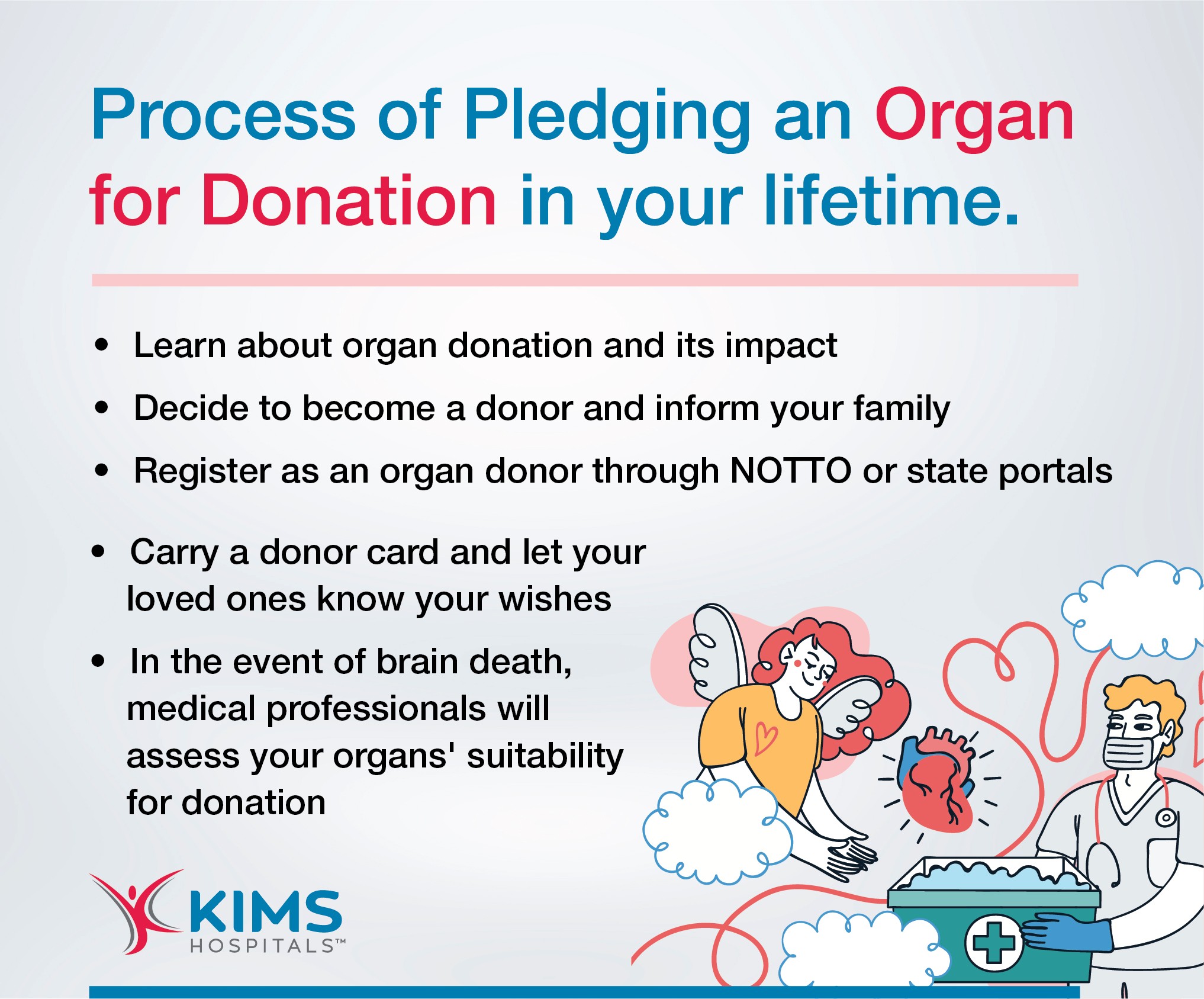
Monday, August 7, 2023
World Organ Donation Day August 13th | Donate organs to save lives and bring hope to those facing life-threatening conditions.
Every year on August 13th, World Organ Donation Day serves as a vital reminder of the significant effect that organ donation may have on many lives throughout the world. This day is dedicated to raising awareness about the pressing need for organ donations and encouraging individuals to become organ donors, potentially saving lives and bringing hope to those facing life-threatening conditions.
Types of Organs That Can Be Donated:
Organ
donation can be a lifesaving gift to those suffering from organ failure. In
India, various organs and tissues can be donated after a person's death or
through a living donation. The organs that can be donated include:
1. The Heart: For patients with advanced heart failure, hearttransplantation is an essential treatment.
2. Liver: For people with severe liver disorders including
cirrhosis or liver cancer, a liver transplant is sometimes their only option.
3. Kidneys: Patients with end-stage renal illness may see a
considerable improvement in their quality of life following a kidney
transplant.
4. Lungs: Lung transplants are necessary for people with
long-term respiratory conditions such Cystic Fibrosis or Chronic Obstructive
Pulmonary Disease (COPD).
5. Pancreas: Pancreas transplantation is performed in
combination with kidney transplantation for patients with diabetes-related
kidney failure.
6. Intestines: For individuals with intestinal failure
brought on by a variety of medical disorders, an intricate surgery called an
intestine transplant is required.
7. Eyes (Corneas): For people who have lost sight due to
corneal injury or blindness, corneal transplantation can help.
8. Skin: Burn patients and those with serious skin damage can utilise donated skin.

WHAT ARE THE MYTHS AND FACTS RELATED TO LIVING DONORS?
There are many myths and facts related to living donors:
Myth: Kidney and liver diseases are rare, so not many people are waiting for a transplant.
Fact: There is a growing number of kidney and liver diseases. There is an increased number of patients awaiting donor organs. These people are on the waiting list. The number of organs available is very limited.
Myth: The donor has to be related to a recipient to donate.
Fact: Today’s advanced immunosuppressant drugs (anti-rejection drugs) have made tissue typing less important when identifying a potential donor. Donors can be a spouse, family member, a friend, an acquaintance of the recipient, or an altruistic non-directed donor.
Myth: You can only donate to a person with the same blood type
Fact: Even if a donor does not have the same blood type as their intended recipient, there are options: •Paired kidney exchange •ABO (blood group) incompatible donation
There is a critical shortage of transplantable organs. Long waiting lists for transplant recipients are the result of a huge mismatch between demand and supply for organs. Governments, medical professionals, non-governmental organisations (NGOs), community organisations, and the general public must all work together to increase organ donation rates in order to save more lives.